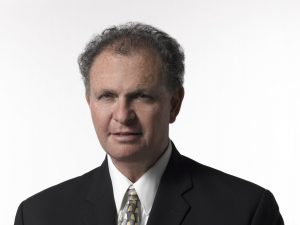Gyrodyne’s megadevelopment: A wolf in sheep’s clothing

By Warren Strugatch
Economic development sounds good. In fact, it sounds great. Reasonable people will tolerate immense inconvenience resulting in financial betterment — for their community and for themselves. Unfortunately, the $150 million megadevelopment planned for Flowerfield, Gyrodyne’s approximately 70-acre campus along 25A in St. James, is to true economic development what a wolf is to sheep’s clothing: a mis-planned, ecologically tone-deaf cover for self-serving overdevelopment.

175-H2 Commerce Drive Hauppauge NY
631-617-5872
When the Town of Smithtown made Gyrodyne’s subdivision application public, its details — the 150-room hotel, the 250-unit assisted living facility, and — most ominously — a 100,000-gallon-a-day sewage treatment plant sited above a vulnerable watershed — earned the immediate ire of prominent environmentalists and civic activists. Opponents vastly outnumbered supporters at the one public forum the town held, in late 2019.
Supporters, following the staunch, pro-business lead of Smithtown Supervisor Ed Wehrheim (R), touted the project as an engine of economic growth. When plans for the subdivision were unveiled, the supervisor lauded the proposed sewer plant as a solution to perhaps the town’s most pressing economic problem, its lack of commercial sewer treatment services. Wehrheim promised to speak with Gyrodyne officials about providing sewage treatment services to the Lake Avenue business district. His remark forged a connection between wastewater treatment access for business and Gyrodyne gaining permission to build.
As a dry sewer line was installed under Lake Avenue, the supervisor’s theme was echoed approvingly by chamber presidents, business district champions and labor leaders. It certainly sounded good. Who could possibly object?
That argument, however, has been thoroughly debunked. Early this year Gyrodyne acknowledged in a filing with the Securities and Exchange Commission that it could not provide treatment services to Lake Avenue businesses nor anyone else not located on its premises. The town, however, has yet to acknowledge this reality. Many residents are still not aware that allowing Gyrodyne permission to build will not mean sewer treatment access.
Local business and labor leaders, along with town officials, continue to make the economic development argument, refocusing on job creation for residents and tax-base expansion. These are canards as well. In fact, few full-time jobs will be created. Construction jobs will be temporary and cannot by law be restricted to Smithtown residents. Most permanent jobs will be relatively low-paying hourly work in the service sector, such as housekeeping posts and positions as health care attendants. Creating high-paying jobs in industry clusters — the key definition of economic development — is not in the cards.
As for expanding the tax base, that too is problematic. About 20 years ago, Stony Brook University — Flowerfield’s immediate neighbor to the east — acquired about three-quarters of the property through eminent domain. The moment the property was annexed by the state, it fell off the tax roll, costing the Town of Brookhaven a fortune in lost revenues. As for the prospect of the university acquiring Flowerfield’s remaining acreage, Gyrodyne has acknowledged in papers filed with the Securities and Exchange Commission that it’s sought to make the property more appealing to the university. The company has not ruled out the university purchasing what it left behind on the Smithtown side of the town line in 2005, similarly removing it from the tax roll.
Since the megadevelopment was proposed, opponents have documented how this project has run roughshod over environment safeguards, ignored the planning profession’s best practices, and disregarded community quality of life. In contrast, supporters have cited economic arguments, suggesting we grant developers the benefit of the doubt.
Sound economic development is indeed a strong advantage. Given the transformational nature of this project, and its planning history, can any community afford to be that trusting?
Warren Strugatch is president of Select Long Island, an economic development advisory organization.





